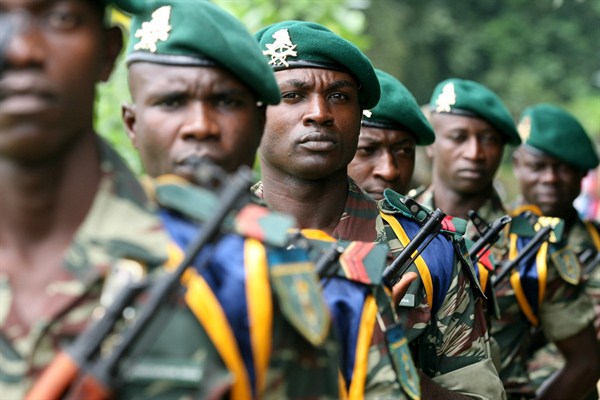In late 2016, when lawyers and teachers began organizing demonstrations against the perceived marginalization of Cameroon’s English-speaking population, one of the most significant questions was whether their discontent would translate into a broader anti-government movement that could mobilize French-speakers as well. More than a year later, the answer appears to be no, or at least not yet. While the crisis has intensified, it remains concentrated in the two western Anglophone regions, which are home to a fifth of the Central African nation’s 22 million people. It has failed to spread east to threaten the capital, Yaounde, and the regime of President Paul Biya.
To the extent the crisis is expanding at all, it is in the opposite direction: into Nigeria, which borders Cameroon to the west. Last week, the United Nations refugee agency reported that more than 15,000 Cameroonians fleeing the government’s heavy-handed response had crossed into Nigeria, and that more were no doubt unaccounted for. The following day, Amnesty International warned that 10 separatist leaders from the Anglophone region had been detained in Nigeria and were at risk of extradition to face “torture and unfair trials” back home.
It was perhaps inevitable that Nigeria would get sucked into the troubles of its neighbor, whose internal tensions can be traced back to the colonial era. Initially colonized by the German Empire, Cameroon was divided between the British and the French after World War I. When French-speaking Cameroon attained independence in 1960, half of the British-occupied territory opted to join it, while the other half voted to join Nigeria.

